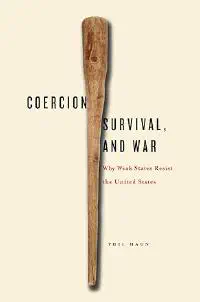Overview
“Casus belli,” a term derived from Latin, directly translates to “case for war.” It is employed in international relations and political science to describe incidents or situations that provide justification—or are alleged to provide justification—for a country to declare war against another. Typically, a “casus belli” involves an act that is considered so offensive or threatening to a nation that it warrants a response through military action. Notably, what one nation views as a legitimate “casus belli,” others may see as a pretext for aggression.
Instances that have historically been deemed a casus belli include acts of aggression like invasions, assaults, and violating territorial sovereignty, among others. Moreover, covert actions such as espionage, assassination attempts, or support for insurgent groups can also serve as a “casus belli.” Additionally, non-violent situations like trade embargoes, sanctions, or the violation of international treaties and agreements can be deemed sufficient cause for war under specific circumstances.
The concept of “casus belli” is entwined with the notion of “just war theory,” which postulates that wars can only be just if they are waged for a good reason (i.e., defensive rather than aggressive), have a reasonable chance of success, and are proportionate, meaning the violence used is not excessive in comparison to the good that the war will achieve. A declared “casus belli” is often scrutinized based on this theory, examining whether it is a genuine call for justice and self-defense or a pretext for unwarranted aggression.
It’s crucial to note that the acceptance of a “casus belli” often relies significantly on both domestic and international perception. In the global context, countries typically aim to demonstrate the legitimacy of their “casus belli” to garner support or, at the very least, neutralize opposition from other nations and international entities. This is especially pivotal in modern times where international law, primarily through the United Nations Charter, generally opposes aggressive wars and supports collective security.
In the annals of history, numerous wars have been instigated where the “casus belli” was later contested or debunked, highlighting the critical perspective that such declared reasons for war can also be manipulated for geopolitical strategy and conquest. Thus, the concept doesn’t only function as a straightforward justification for military action but also as a critical facet of geopolitical strategy, public relations, and international diplomacy.
In modern geopolitical contexts, “casus belli” must be navigated with astute diplomatic care. In an era dominated by global interconnectivity, where conflicts can have far-reaching impacts and involve multiple, often non-combatant parties, the validity and ethicality of a “casus belli” are likely to be scrutinized at international levels. Countries, therefore, often seek alternative, non-military means of resolving disputes and tensions, employing “casus belli” only in scenarios where alternative avenues have been exhausted or in instances of apparent and immediate threat.
In Context

Two attacks by North Vietnamese patrol boats on U.S. destroyers operating in international waters off the coast of North Vietnam in August 1964 led Congress to pass the Gulf of Tonkin Resolution authorizing the president to take all necessary measures to restore peace in Southeast Asia, “including the use of armed force.” As a casus belli, these attacks were caught up in a controversy that lasted for decades. Some questioned whether the attacks even took place. Others noted that the North Vietnamese patrol boats may have mistaken the U.S. destroyers for South Vietnamese saboteur vessels. With access to classified documents on the incident, Edwin Moise, a prominent historian of the Vietnam War, has concluded that the first attack did take place, but the second did not.
Still, the United States pressured the UN Security Council to obtain Resolution 1441 with its limited coercive demand for Iraqi cooperation and the disclosure of its WMD. The administration, did not, however, expect Iraq to comply. In fact, it counted on coercion failure to justify the invasion it had already planned. Instead of making coercive demands of regime change and occupation, Bush instead threatened them as punishment for the Iraqi non-compliance he expected. The United States did not go to the Security Council to coerce Iraq but rather to obtain a casus belli for a brute force invasion. An authorization to use force would lower the diplomatic and political costs for the invasion, as it had in 1991 with the invasion of Kuwait. Even though the administration had little regard for the UN, it still recognized the value of first going through the Security Council to decrease the overall costs of war. Unlike his father, however, George W. Bush failed to obtain his UN justifica-tion for war. In the end, due to his misperception of the threat of Iraqi WMD and miscalculation of the costs of occupation, he accepted the censure by the international community for abrogating international norms of unsanctioned aggression.

